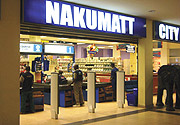Rwandans self pity due to inferiority complex towards the other East African Community (EAC) countries has largely been attributed to its relative small size, the fact that it is landlocked and with few natural resources.


Rwandans self pity due to inferiority complex towards the other East African Community (EAC) countries has largely been attributed to its relative small size, the fact that it is landlocked and with few natural resources.
This belief is however wrong. The inferiority they suffer is in their attitude towards work. Only in Rwanda do people close shops to go for meals and ‘siesta’. This is inspite of the government’s advice that businesses start operating 24 hours to maximise profits.
Kigali is blessed with good weather and security. None of the other capitals within the region can boast of security, even close to what Kigali has. Yet, the business fraternity is not ready to exploit it (security) to make profits, by opening until late.
Instead, they sleep or go out to dance. This is where we go wrong. This kind of attitude towards work in general will remain the undoing of the people in Rwanda. It will be difficult to match the speed with which other East African states are growing.
The Rwandan people must change or be helped to change their attitude towards work, if they are to match the level of other member states in the East African Community. The people of Kenya, Tanzania and Uganda practically work actively 24 hours. Rwandans do not go beyond eight working hours a day.
"I work from 5.00am to 11.00pm every day. I do not to go for lunch because people sell foods here. It is cheaper in terms of cash and time for me to buy food from where I work than paying for transport to go home for lunch,” said Jackson Dapashi, a small-scale retailer along Murang’a road in Nairobi City.
It is the direct opposite of what happens in Kigali. When it clocks 12.00pm, some businesses close. People go out for lunch or take time to rest. Should a customer try to get any service, they face the wrath of the businesspersons. You will be surprised by the answer you get when you ask prices of commodities in shops.
A customer who meets Kigali business people during lunch time will be in trouble, for he or she will receive the coldest reception on earth.
"Most of the time I am put off by the way business people in Kigali behave. I cannot imagine how one tells off a customer bringing money. We struggle to get the money and do the same to spend,” complained Jane Mutuyemariya, a resident of Kimironko, in Kigali.
The other people in East African countries have an opposite attitude. Even a person holding a plate of food will put it down to serve the customer first. In this part of the world, the principle that, ‘the customer is the King’ still holds, thus the difference.
The other major difference in work attitude stems from the stiff competition experienced in these markets. With the cut throat competition, businesses cannot afford to let even one customer walk away. Sitting on one’s laurels, even if it is at lunch time would mean sleeping hungry.
Probably what Rwanda needs is stiff competition in all sectors of its economy, and from the look of things, that stiff competition will soon be a reality. There is need therefore for the business fraternity to start changing its attitude towards work so that by the time competition reaches its peak, they are well in the lead.
Contact: mugitoni@yahoo.com


